Chagos Archipelago. A Leaky Agreement.
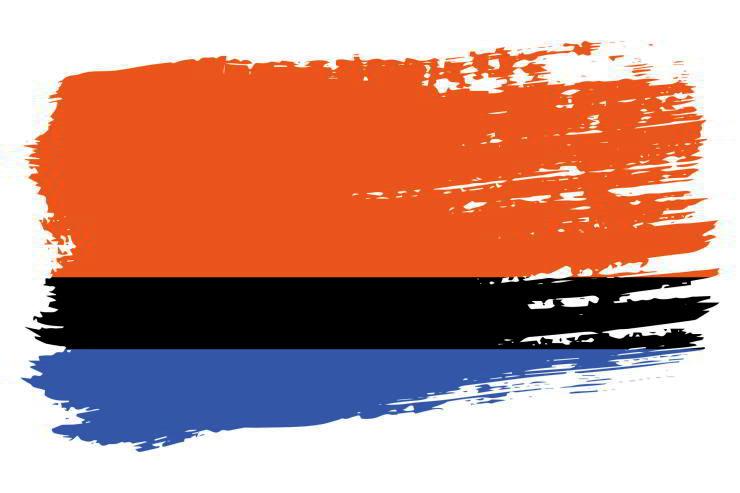
Mauritius and the United Kingdom have reached an agreement on the sovereignty of the Chagos Archipelago, almost bringing to a close a little-known but truly global dispute. One of the atolls hosts a major US military base.
The Chagos Archipelago is located in the heart of the Indian Ocean: a group of 60 small islands located exactly halfway between Zanzibar and Indonesia. The largest of the islets, Diego Garcia, hosts a US military base that is considered one of the most important defence installations in the world. From Diego Garcia, the US can conduct naval operations in the most diverse and important theatres: from the Persian Gulf to Central Asia to the South China Sea. But the Chagos are not a US territory. They are governed by Great Britain.
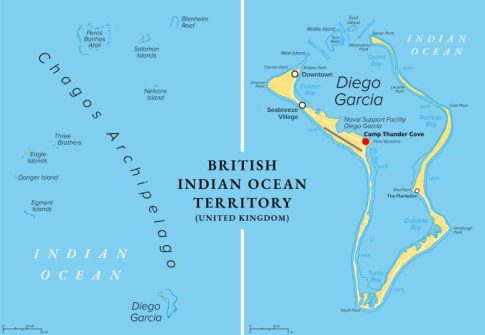
British Indian Ocean Territory, BIOT, political map. Atolls of the Chagos Archipelago in the Indian Ocean, with the largest island Diego Garcia, the site of a Joint Military Facility. 123rf
In 1965, London separated the archipelago from Mauritius, its colony at the time, to create the so-called British Indian Ocean Territory (BIOT), the last colonial entity to be established by the British Empire, now in decline. The BIOT also includes territories belonging to the Seychelles: the islands of Aldabra, Desroches and Farquhar. While these were returned to the Seychelles once the country achieved independence in 1976, the same did not happen for the Chagos.
On the contrary, Great Britain decided to adopt a very clear line: to continue to exercise control over the island as long as it would be useful for defence and security reasons.
Second to Washington
BIOT was created to serve the interests of the United States. The dominant ally in the West during the Cold War. In exchange, Washington would have guaranteed a discount of 14 million dollars on a shipment of Polaris missiles. Between 1965 and 1974, the authorities of the United Kingdom then expelled the native inhabitants of the islands, the Chagossians (whose number was around 1500 at the time), so that the US military could manage Diego Garcia without any civilian population nearby. Once the local inhabitants were removed, London committed to setting up a legal and political architecture that could guarantee the Pentagon maximum secrecy, isolation and operational flexibility.
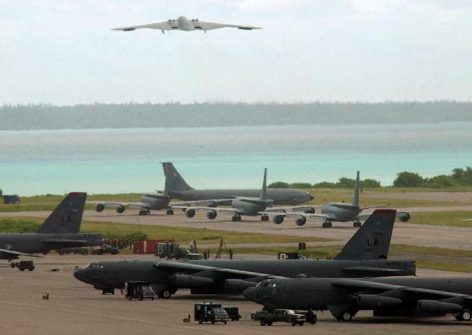
B-2 bomber takes off, B-52 bombers on tarmac on Diego Garcia. (Photo: Us Army)
The importance of the base has grown since the 1970s. Initially a structure with modest responsibilities, used mostly to monitor Soviet naval activity, its functions have since expanded to become essential as a naval base, airport and logistics hub. The base has been fundamentally, for example during the conflicts in Afghanistan and Iraq, conducted under US leadership since 2001. Diego Garcia has taken on a new specific strategic weight in the rivalry with China. Although the base is often described as jointly managed by the US and the UK, even in official documents, the truth is that the British rarely make use of the structure located in the heart of the Indian Ocean; the naval installations in Bahrain and those of the air force in Qatar, the United Arab Emirates and Oman are much more important for London than remote Diego Garcia. BIOT is also a rather peculiar jurisdiction. It is the only administrative unit present on earth that exists with the exclusive function of hosting the military base of a foreign country. A political status and a history so peculiar that they have been subjected to a profound legal review in recent years. The result is that British sovereignty over the islands could become a thing of the past before long.
Colonial abuse
In short, it can be argued that the separation of the Chagos Archipelago from Mauritius in 1965 was illegitimate because it was contrary to the prevailing international norms of decolonization and self-determination.
At least, this is what the United Nations and the vast majority of governments in the world have argued. From this perspective, therefore, the Chagos Islands are a territory of Mauritius illegally occupied by Great Britain.Mauritius has claimed sovereignty over the islands for decades. For a long time, London rejected any protest from Port Louis and refused to enter into negotiations on the issue. The US did the same. But the Chagos affair became impossible to ignore in 2019. That year, the UN International Court of Justice supported Mauritius’ position with an advisory opinion. That same year, at the General Assembly, 116 countries urged London to withdraw from the Chagos. Only five governments (including Washington) sided with the UK.
The agreement
The path has now been set, with London and Port Louis announcing last October that they had reached an agreement to resolve the dispute over the Chagos Islands. In the agreement, London intends to recognize sovereignty over the entire Chagos Archipelago in exchange for authorization to continue to administer Diego Garcia for a period of at least 99 years. During this first century, the island will continue to host the US military base under conditions substantially similar to those that have governed its management up to now. The pact also includes an economic component, the terms of which have not been disclosed. What is known is that London will pay an annual sum to Mauritius.
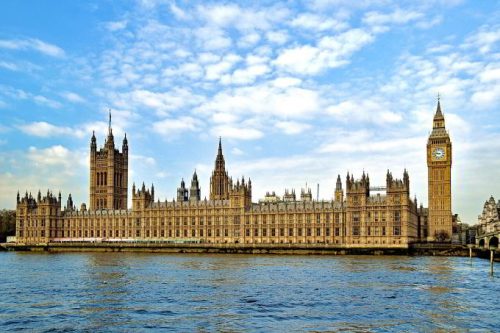
Westminster. The agreement results from several rounds of negotiations between British and Mauritian diplomats. CC BY-SA 4.0/Thomas Dahlstrøm Nielsen
An important aspect is that the agreement establishes that Port Louis will have to facilitate the return of the Chagossians to the archipelago (with the exception of Diego Garcia). What is the reason for this agreement? And why was it reached now? The impression is that London and Washington arrived at it after having achieved two objectives. The first is that Great Britain’s legal position was untenable. A state of affairs that, if not remedied, could also have compromised the operation of the Diego Garcia base. The second is that in the end, Mauritius is a somewhat tolerable “landlord”: a country that can be co-opted by the West even with just bilateral agreements and without resorting to obsolete imperial-style governance methods.
A historical provocation
A turning point occurred in February 2022, when Mauritius sent a ship to one of the islands of the archipelago (not Diego Garcia) as part of a mission officially defined as scientific (in theory, to document the rise in sea levels). The initiative, however, was full of political and legal value. Although London had in fact been informed in advance of the plans of the Mauritian delegation, the British authorities refused to intervene once the vessel entered Chagossian territorial waters. Indeed, British and American officials were present, as representatives of the Mauritian mission disembarked to raise the Port Louis flag on the territory of the archipelago. The symbolic gesture was carried out by an enthusiastic group of Chagossian diplomats, lawyers, journalists and activists.
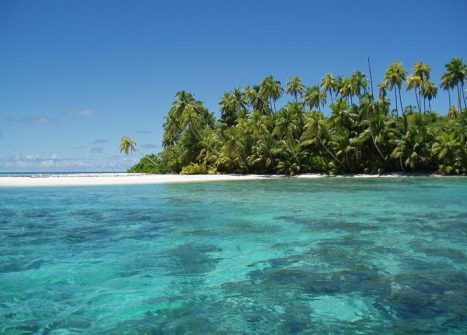
Salomon Atoll is one of the many above-water features of the Chagos Archipelago. CC BY 3.0/Charles and Anne Sheppard
London’s hesitation on this occasion is not difficult to explain: given the uncertain status of the islands, Crown officials were not sure whether they were legally authorized to block Mauritian visitors and were therefore not prepared to take legal responsibility for any intervention. Given this situation, it is clear why US officials also considered the British era on the archipelago to be over. If London is not sure of its legal authority to stop unauthorized visitors to the islands, then it can no longer be considered a reliable “host.” If we add the fact that Mauritius had repeatedly publicly committed to guaranteeing the security of the US base under the terms of the sovereignty agreement, it is understandable why Washington began to seriously question whether it was worth remaining anchored to the old status quo.
Of the two contenders, USA wins
The October 2024 agreement is the result of several rounds of negotiations between British and Mauritian diplomats. The intensification of diplomatic efforts is due to the awareness that the status quo was now unsustainable for everyone. The talks have been strongly supported by the administration of former US President Joe Biden. On 1 April 2025, U.S. President Donald Trump approved the deal between the UK and Mauritius. Under the terms of the deal, the UK will give up control of the Chagos archipelago while paying to maintain control of a joint US-UK military base on the largest island, Diego Garcia, under a 99-year lease. The agreement, the Diego Garcia base will finally be able to rely on a clear legal basis without having to incur significant changes in its daily functioning. London would remain an intermediary between Washington and Port Louis and will also be responsible for paying the rent: for the US, this is a clear victory.
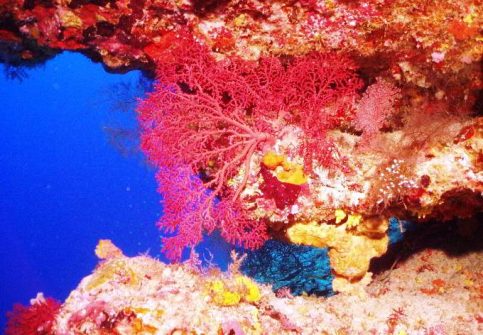
The Chagos Archipelago is a hotspot of biodiversity in the Indian Ocean. CC BY 3.0/Charles and Anne Sheppard
The agreement has nevertheless been criticised. In the United Kingdom, the opposition complained about the abandonment of the archipelago, stating that London should not give up its sovereignty. Even in the US, there is no shortage of critical opinions: some have raised fears of possible Chinese interference once the islands return to Mauritian control. The Chagossian diaspora is also divided: while some have welcomed the news of the agreement with joy, others have strongly opposed it. Finally, the new government of Mauritius led by Prime Minister Navin Ramgoolam, elected in the elections last November, has accused the previous executive that signed the agreement of having obtained too little for the country. (Open Photo: Chagos Islands flag, wide brush stroke on transparent background. 123rf)
Peter Harris



